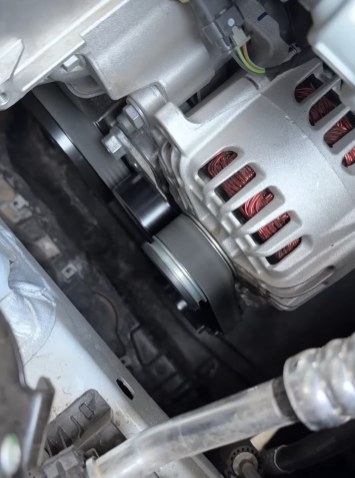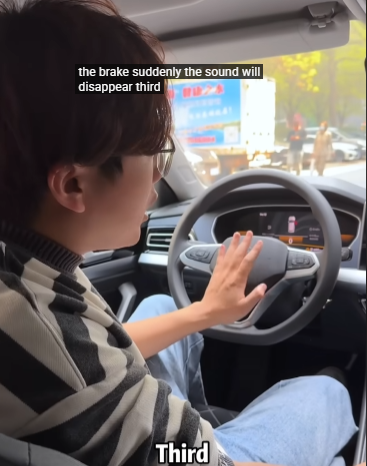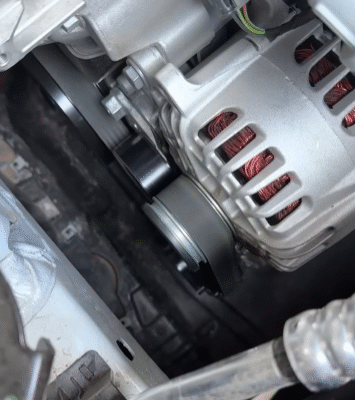
Cars are one of the most important tools in our daily lives. They take us to work, school, or vacations, and they make life significantly easier. However, one thing that can instantly cause stress for any car owner is the appearance of abnormal noises. Whether it’s a squeal when you brake, a rattle when you accelerate, or a grinding sound when turning the wheel, these noises can make you anxious. You might imagine the worst-case scenarios, like expensive repairs or major engine issues. But the good news is: the solution is often far simpler than you think. Understanding the type of noise your car makes and taking prompt action can save you both money and time.
Understanding the Different Types of Car Noises
The first step in solving any problem is identifying it accurately. Car noises can be categorized into several types, each pointing to specific issu
Squealing or Screeching: This is one of the most common noises car owners hear, particularly when braking. Often, a high-pitched squeal comes from worn brake pads. Modern cars even have brake pad wear indicators that create a noise when the pads need replacement. Sometimes, squealing can also come from the serpentine belt or other engine belts that have become worn or loose.
Grinding: If you hear a grinding sound when applying brakes, it is usually a serious warning. This could indicate that the brake pads have completely worn down and the metal parts of the brakes are scraping against each other. Grinding can also occur in manual transmissions if the clutch isn’t fully disengaging or if the gears are not meshing properly.
Rattling: A rattling noise can have multiple causes. Loose heat shields, engine components, or exhaust systems often cause this type of noise. Sometimes, the rattle could be as simple as a loose bumper or a piece of trim vibrating while driving.
Hissing or Whistling: This sound often comes from a vacuum leak in the engine or from a small leak in the exhaust system. Hissing can also appear if the radiator or cooling system is leaking or under pressure.
Knocking or Pinging: Engine knocking or pinging usually indicates that fuel is detonating unevenly in the engine cylinders. This can happen if you are using low-quality fuel, if the engine timing is off, or if carbon deposits have formed inside the combustion chamber.

Why Small Noises Can Become Big Problems
One key reason why you should never ignore abnormal noises is that they often start small but can lead to major problems if left unattended. For example, a minor squeal in the brakes might seem harmless at first, but continued use can wear down the brake pads completely, damaging the rotors as well. What could have been a simple and inexpensive fix turns into a major repair that could cost hundreds of dollars.
Similarly, a rattling noise from the engine could indicate a loose component that might eventually break free, causing engine damage or even a breakdown on the road. Catching these problems early is essential for safety and for protecting your investment.
The Very Simple Solution: Diagnosis and Maintenance
The good news is that, in most cases, the solution to abnormal car noises is surprisingly simple. Here are the steps you can take:
- Listen Carefully: Try to identify where the noise is coming from and under what conditions it occurs. Is it when braking, accelerating, idling, or turning? Does it happen consistently or only occasionally? This information will be invaluable for diagnosing the problem.
- Check the Obvious: Before panicking, look for easy-to-fix issues. Check fluid levels, loose parts, or worn-out components. For example, brake pads, belts, and hoses are all visible and relatively easy to inspect. Sometimes, tightening a loose screw or replacing a worn belt can eliminate the noise entirely.
- Consult the Manual: Car manuals often provide guidance on normal versus abnormal noises. Some sounds might be typical for certain engine types or models. Knowing what’s normal can save unnecessary worry and expense.
- Routine Maintenance: Many abnormal noises are caused by neglect. Regular oil changes, brake inspections, tire rotations, and belt replacements can prevent most common issues. If your car is serviced on time, the chances of hearing alarming noises drop significantly.
- Use Diagnostic Tools: Modern cars often have onboard diagnostic systems (OBD-II) that can detect engine and transmission problems. A quick scan at a service center or with a personal diagnostic tool can pinpoint the cause of some noises.
- Seek Professional Help When Needed: While many noises have simple fixes, some issues require professional attention. If the noise persists after checking the obvious and performing routine maintenance, it’s wise to consult a certified mechanic. They have the experience and tools to safely identify and repair more complex problems.

Simple Preventive Measures
Preventing abnormal noises before they start is even better than fixing them. Here are a few preventive measures:
- Regular Inspections: Even if your car seems fine, regular inspections catch wear and tear early.
- Use Quality Parts: Cheap replacements can wear faster or cause other issues, leading to new noises.
- Drive Smoothly: Aggressive acceleration, braking, and cornering stress components and create noises.
- Keep It Clean: Dirt, debris, and corrosion can cause rattles and other issues in multiple parts of the car.
The Mental Benefit: Peace of Mind
Abnormal car noises are more than mechanical problems—they are a mental burden. Each squeal or rattle can make you anxious, wondering if a breakdown is imminent. Knowing that most noises have simple solutions can ease this stress. A quick check, preventive maintenance, or minor repair often eliminates the problem completely, letting you enjoy your ride in peace.
Conclusion: Don’t Panic, Solve It Simply
The next time your car makes an unusual noise, remember that the solution is often very simple. Identify the noise, check the obvious issues, perform routine maintenance, and seek professional help when needed. Most of the time, you’re not looking at a catastrophic failure—just a minor adjustment or replacement that keeps your car running smoothly.
By understanding your vehicle and taking proactive measures, you can save money, reduce stress, and extend the life of your car. Abnormal noises may be annoying, but they don’t have to be alarming. With a little attention and care, you can quickly solve the problem and get back to enjoying your ride.
After all, a quiet, smoothly running car is not just a convenience—it’s a reward for taking the time to care for one of your most valuable possessions. So, the next time you hear a squeal, grind, or rattle, remember: the solution is often right at your fingertips. Don’t ignore it. Solve it simply, and your car—and your mind—will thank you.




